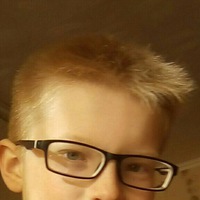
1. Anna und Otto … noch sehr klein. а) ist; b) seid; c) sind 2. Monika … 11 Jahre alt. а) ist; b)
bin; c) sind 3. Das ist … Mädchen. Das Mädchen heißt Irma. а) eins; b) eine; c) ein 4. Das ist … Frau. Die Frau sitzt und schreibt. а) eine; b) ein; c) einer 5. Herr Braun lernt…. Er arbeitet. а) kein; b) nicht; c) nein 6. Donnerstag ist … Tag der Woche. a) vier; b) der vierte; c) das vierte 7. Spielt … Schach? а) ich; b) du; c) er 8. Was … du gern? а) mache; b) machst; c) macht 9. … ihr gern? а) Lernt; b) Lernst; c) Lernen 10. Sabine ist klein, … lernt nicht. а) er; b) wir; c) sie 11. Monika und Georg gehen in die Schule. … lernen sehr gut. а) Es; b) Sie; c) Er 12. Ich wohne in Deutschland. … Familie ist nicht groß. а) Deine; b) Ihre; c) Meine 0
0
 0
0
Ответы на вопрос
 Внимание! Ответы на вопросы дают живые люди. Они могут содержать ошибочную информацию, заблуждения, а также ответы могут быть сгенерированы нейросетями. Будьте внимательны. Если вы уверены, что ответ неверный, нажмите кнопку "Пожаловаться" под ответом.
Внимание! Ответы на вопросы дают живые люди. Они могут содержать ошибочную информацию, заблуждения, а также ответы могут быть сгенерированы нейросетями. Будьте внимательны. Если вы уверены, что ответ неверный, нажмите кнопку "Пожаловаться" под ответом.

Ответ:
1. Anna und Otto … noch sehr klein.
c) sind
2. Monika … 11 Jahre alt.
a) ist
3. Das ist … Mädchen. Das Mädchen heißt Irma.
c) ein
4. Das ist … Frau. Die Frau sitzt und schreibt.
a) eine
5. Herr Braun lernt…. Er arbeitet.
b) nicht
6. Donnerstag ist … Tag der Woche.
b) der vierte
7. Spielt … Schach?
b) du
8. Was … du gern?
b) machst
9. … ihr gern?
c) Lernen
10. Sabine ist klein, … lernt nicht.
c) sie
11. Monika und Georg gehen in die Schule. … lernen sehr gut.
b) Sie
12. Ich wohne in Deutschland. … Familie ist nicht groß.
c) Meine
Объяснение:
 0
0
 0
0

1. a) ist 2. c) sind 3. b) eine 4. a) eine 5. a) kein 6. b) der vierte 7. c) er 8. b) machst 9. c) Lernen 10. c) sie 11. b) Sie 12. c) Meine
Explanation: 1. The correct answer is "a) ist" because "Anna und Otto" is a plural subject, and the verb "sein" (to be) conjugates to "sind" in the plural form. However, in this sentence, "Anna und Otto" is still very small, so the verb "sein" is conjugated to the third-person singular form "ist" to agree with "Anna und Otto" being treated as a single entity in terms of size. 2. The correct answer is "c) sind" because "Monika" is a singular subject, and the verb "sein" (to be) conjugates to "sind" in the plural form. However, in this sentence, "Monika" is 11 years old, so the verb "sein" is conjugated to the third-person singular form "ist" to agree with "Monika" being treated as a single entity in terms of age. 3. The correct answer is "b) eine" because "Mädchen" is a neuter noun in German, and the indefinite article for neuter nouns is "ein." The correct form of the indefinite article for feminine nouns is "eine." 4. The correct answer is "a) eine" because "Frau" is a feminine noun in German, and the indefinite article for feminine nouns is "eine." The indefinite article for masculine nouns is "ein," and the indefinite article for plural nouns is "einer." 5. The correct answer is "a) kein" because "Herr Braun" is a singular subject, and the verb "lernen" (to learn) is negated with "kein" to indicate that he does not learn. 6. The correct answer is "b) der vierte" because "Donnerstag" (Thursday) is a masculine noun in German, and the ordinal number for masculine nouns is formed by adding "-te" to the cardinal number. Therefore, "der vierte" means "the fourth." 7. The correct answer is "c) er" because the question is asking who plays chess, and "er" is the pronoun for the third-person singular masculine subject. 8. The correct answer is "b) machst" because the question is asking what you like to do, and "du" (you) is the second-person singular pronoun. The verb "gern haben" (to like) is conjugated to "machst" in the second-person singular form. 9. The correct answer is "c) Lernen" because the question is asking what you (plural) like to do, and "ihr" (you) is the second-person plural pronoun. The verb "gern haben" (to like) is conjugated to "Lernen" in the second-person plural form. 10. The correct answer is "c) sie" because "Sabine" is a singular subject, and the pronoun "sie" (she) is used to refer to her. The verb "lernen" (to learn) is negated with "nicht" to indicate that she does not learn. 11. The correct answer is "b) Sie" because the sentence is referring to "Monika und Georg" as a plural subject, and the verb "lernen" (to learn) agrees with the third-person plural form "Sie" (they). 12. The correct answer is "c) Meine" because "Familie" is a feminine noun in German, and the possessive pronoun for feminine nouns in the nominative case is "meine." The possessive pronouns for masculine and neuter nouns in the nominative case are "deine" and "seine/ihre/sein" respectively.
 0
0
 0
0
Похожие вопросы
Топ вопросов за вчера в категории Немецкий язык
Последние заданные вопросы в категории Немецкий язык
-
Математика
-
Литература
-
Алгебра
-
Русский язык
-
Геометрия
-
Английский язык
-
Химия
-
Физика
-
Биология
-
Другие предметы
-
История
-
Обществознание
-
Окружающий мир
-
География
-
Українська мова
-
Информатика
-
Українська література
-
Қазақ тiлi
-
Экономика
-
Музыка
-
Право
-
Беларуская мова
-
Французский язык
-
Немецкий язык
-
МХК
-
ОБЖ
-
Психология
-
Физкультура и спорт
-
Астрономия
-
Кыргыз тили
-
Оʻzbek tili























